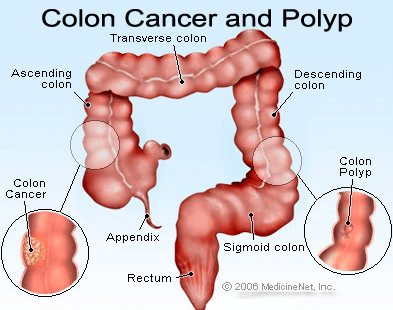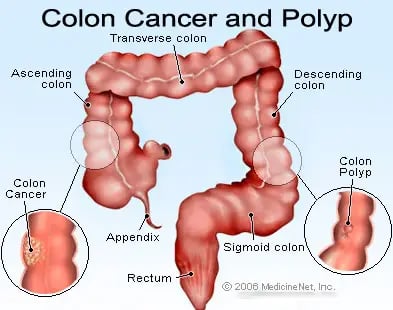Rectal bleeding is a medical condition that refers to the passage of blood mixed with stool via the anus. This condition may be due to a small tear...
Read More Causes of Rectal BleedingColon cancer is now a pressing concern in the United States. However, unlike most cancer ailments, the good news is that colon cancer can be...
Read More Colon CancerAlso referred to as colonic cancer, colon cancer has over the past couple of years grown to become a killer disease all over the world. Research...
Read More Colon Cancer Detection: What You Need to DoColoRectal Cancer Awareness Month Study Finds Colonoscopy Safe and Effective- Read on: Is a colonoscopy really safe? If your 50 years of age or...
Read More Study Finds Colonoscopy Safe and EffectiveIn some respects, the U.S. is winning the war on cancer. Recent reports show an overall decline in the number of new cancer cases and fewer cancer...
Read More Colorectal cancer on the rise in adults under 50 - Dr. StarpoliHigh-Fiber Diet May Help Thwart Colon Cancer Review of studies suggests cereals, whole grains deliver health benefits
Read More High-Fiber Diet May Help Thwart Colon Cancer - Dr. StarpoliColorectal cancer is the second leading cause of cancer related deaths in the US. The risk of developing colon cancer increases exponentially with...
Read More The Impact of Regular Exercise on Colon Health & Cancer SurvivalMarch 2011 is Colon Cancer Awareness Month. In view of this, it is pertinent to review the facts about colorectal cancer, as well as certain...
Read More March is Colon Cancer Awareness MonthI came upon this post on the endonurse.com web site. For those who will be having colon cancer screening with colonoscopy, this application may be...
Read More New App Helps Patients with Colonoscopy PreparationAs reported from Medscape (11/4, Canavan) reported, "Two new tests that examine the gene signatures of peripheral blood mononuclear cells have...
Read More Two Gene Signature-Based Tests May Help Identify Colon Cancer.







.jpg?width=476&height=549&name=mc900438737_!-4%20(1).jpg)
_1.webp?width=476&height=549&name=colon_pictures_20100906_1846582001%20(1)_1.webp)

